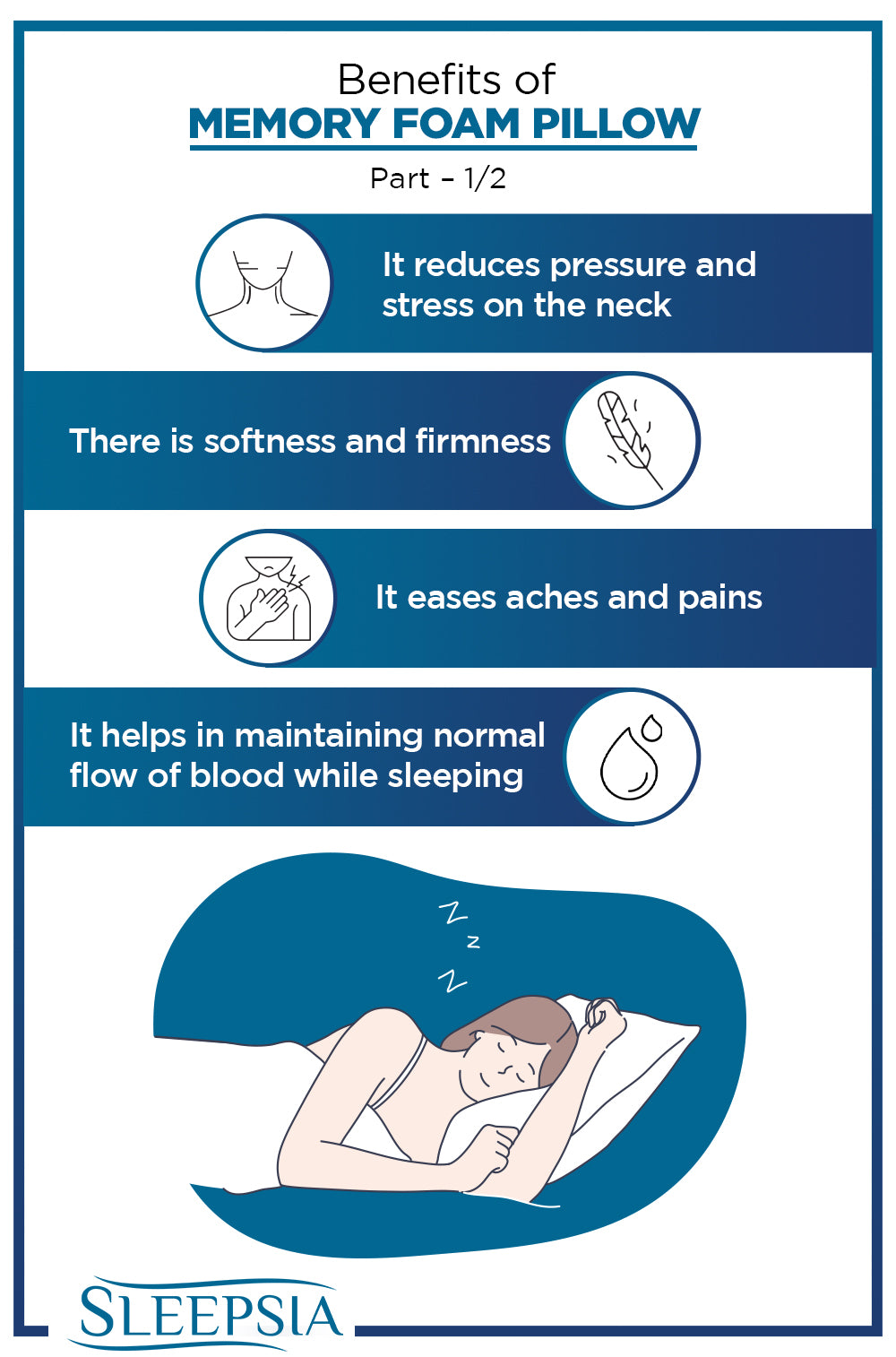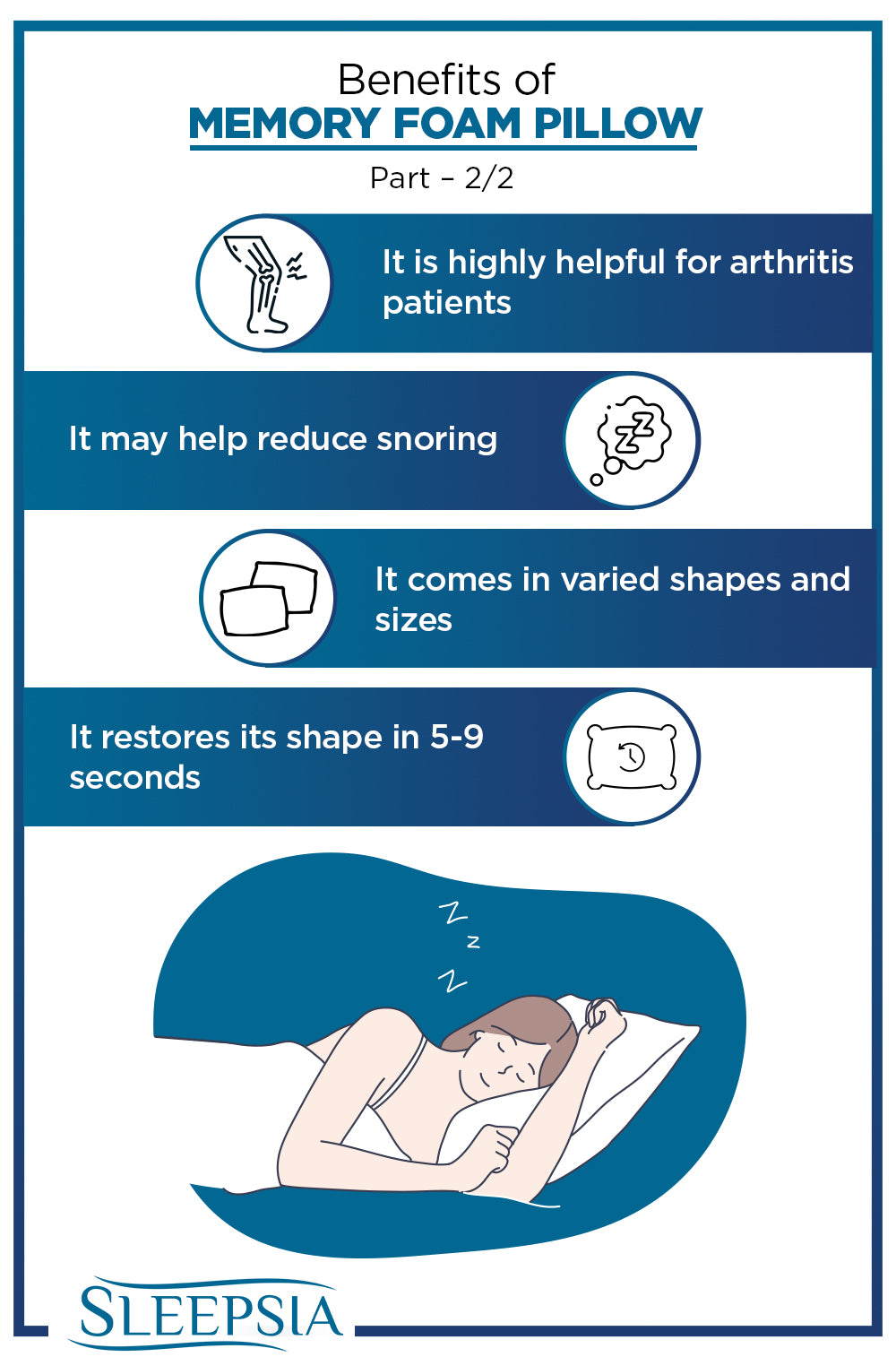
Memory Foam Pillows: Meaning
If you’ve heard about memory foam pillows but aren’t quite sure what they are or why people love them, you’re in the right place. In this blog we’ll explore what memory foam pillows meaning and why they can be a great choice for your bedroom.
What is a Memory Foam Pillow?
Memory foam meaning is also known as visco-elastic foam which has polyurethane foam with extra chemicals which enhances its viscosity and density for alleviating all sleep-related issues. The foam ‘cells’ or bubbles are open which create a matrix without any trouble to allow the air to move freely.
After years of research, NASA first discovered a unique material for absolute cushion safety. Higher-density memory foam absorbs the reaction to body heat, letting it mold according to the body heat in a few minutes. Memory foam always remains soft or comfortable. New memory foam pillow may quickly recover to the original shape without going flat.
Benefits of Memory Foam Pillows

Memory foam pillows offer several advantages that make them popular. Here are some of the main benefits:
Support for Your Head and Neck
Neck pain is quite common these days, and is due to different reasons. The most common reason for neck pain is incorrect sitting posture. Memory foam pillow could be the best support for your neck. Memory foam’s key uniqueness is its high densities to actively respond to body heat, molding and conforming itself to the body shape in a few minutes.
At low densities, memory foam is pressure sensitive and reacts quickly to body shape. They conform to the shape of your head and neck, which helps keep your spine aligned while you sleep. This can reduce neck pain and make you more comfortable.
Pressure Relief
If you wake with a sore neck and back, a memory foam pillow could be the perfect choice for you. Because the foam molds to your body, it reduces pressure points. This means you’re less likely to wake up with aches and pains, especially if you sleep in the same position for a long time.
Memory foam pillows are known for offering helpful pressure relief and incomparable comfort. This pillow has many users to get rid of serious sleep issues and health issues like snoring, tensions, asthma, cervical pain, allergy, depression, insomnia, stiffness, breathing problem, neck pain & migraine etc.
Reduces Movement
Sleeping beside someone could be difficult if you wake up by any movement in the surroundings. Traditional pillows can make it hard for you to sleep peacefully. Memory foam absorbs movement, so if you share your bed with a partner, you’re less likely to feel their movements. This can help you sleep more soundly.

Durability
We Indians love things that are durable. Memory foam can be a good investment if you keep it with proper care. When we use the same pillow for a long time, it starts to lose its shape and loft, this is not the case with memory foam pillow. It comes back to its original shape after you leave the bed. Provides great support and pain-free sleep even after years of use and each time you lay, it contours perfectly by matching the shape of neck and head to offer an incredible experience of sleeping.
Hypoallergenic
Pillows can collect mold, dust and other small particles over time. It can create many skin problems like acne and pimples, also it is a nightmare for people suffering from dust allergies and asthma. Memory foam pillows are often resistant to dust mites and other allergens, which can be helpful if you have allergies. A dust free pillow can also help your skin to repair and rejuvenate through the night.
How to Make the Most of Your Memory Foam Pillow
- Give It Time to Expand: When you first get your memory foam pillow, it might be compressed in packaging. Allow it to expand and reach its full shape by letting it sit out for a few hours or overnight. Also, at first it will smell a little odd, don’t worry, the smell will go away in some days.
- Use a Pillowcase: To protect the pillow from dust, mold, oil or any sweat stains, put a pillowcase on it. It not only keeps it clean but also reduces maintenance efforts and extends its life.
- Keep It Dry: It is recommended to not wash the pillow with water until you want to deep clean it, which you can do but after a long use. Water can damage the foam so avoid washing it too often. If you need to clean it, follow the care instructions, usually involving spot cleaning and air drying.
Conclusion
If you’re looking for a pillow that can help you sleep better, a memory foam pillow might be a perfect choice. The Memory Foam Pillows use premium quality material which contours to the natural shape of the neck and shoulder and molds to fit perfectly according to the neck and head. People around the world are now aware of the long-term health benefits of memory foam pillow due to its outstanding properties.
It is highly Suggested by Doctors and Physical Therapists as it helps in relieving shoulder and neck pain by allowing shoulder and neck muscles to totally relax without distortion of the proper spinal alignment.








